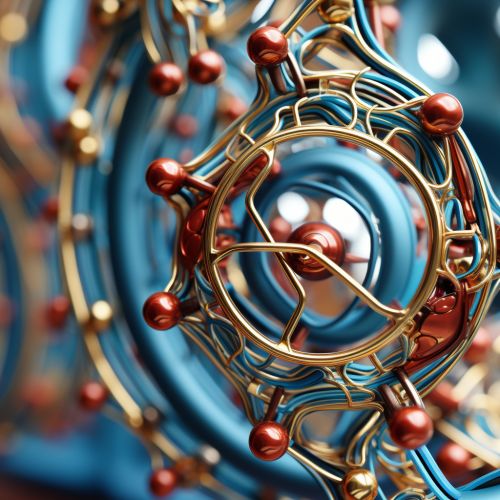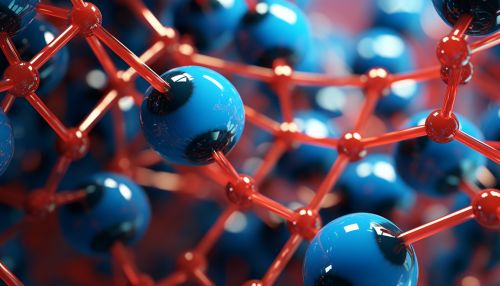Molecular motor
Introduction
A molecular motor is a type of molecule that is capable of converting chemical energy into mechanical work. These motors are essential components of biological systems, powering processes such as cell division, muscle contraction, and intracellular transport. The study of molecular motors is a multidisciplinary field, drawing on principles from biochemistry, biophysics, and structural biology.


Classification
Molecular motors can be broadly classified into two categories: linear motors and rotary motors. Linear motors, such as kinesins and dyneins, move along microtubules in a straight line. Rotary motors, like the ATP synthase, rotate around an axis to perform their function.
Mechanism of Action
The operation of a molecular motor involves a series of chemical reactions, typically involving the hydrolysis of ATP to ADP and inorganic phosphate. This process releases energy, which is then used to drive mechanical work. The specific mechanisms of action can vary greatly between different types of molecular motors, reflecting the diversity and complexity of these molecules.
Biological Functions
Molecular motors play a crucial role in a wide range of biological processes. For instance, the kinesin and dynein motors are involved in the transport of vesicles and other cellular components along microtubules. This is essential for maintaining the organization and function of cells. Rotary motors like the ATP synthase are responsible for the synthesis of ATP, the main energy currency of cells.
Research and Applications
Research into molecular motors has potential applications in a variety of fields. For example, understanding the workings of these motors could lead to the development of novel drugs for treating diseases such as cancer and neurodegenerative diseases. In addition, molecular motors could be harnessed for use in nanotechnology, potentially leading to the creation of microscopic machines or devices.
